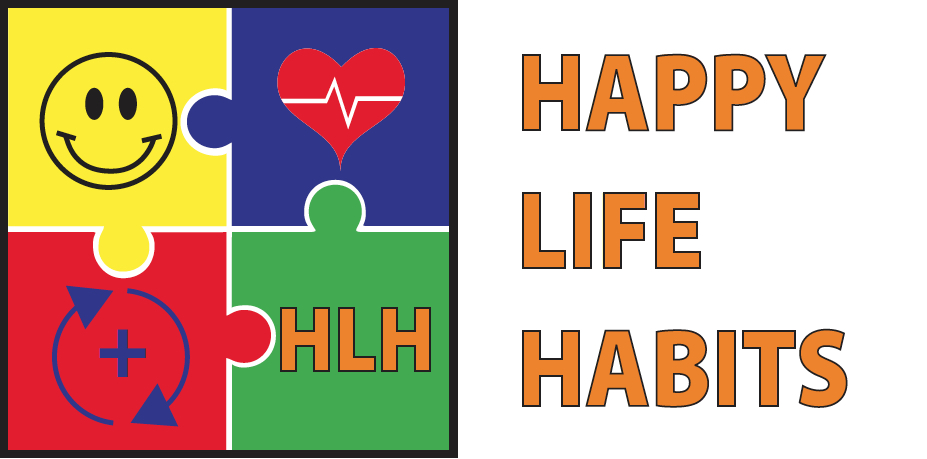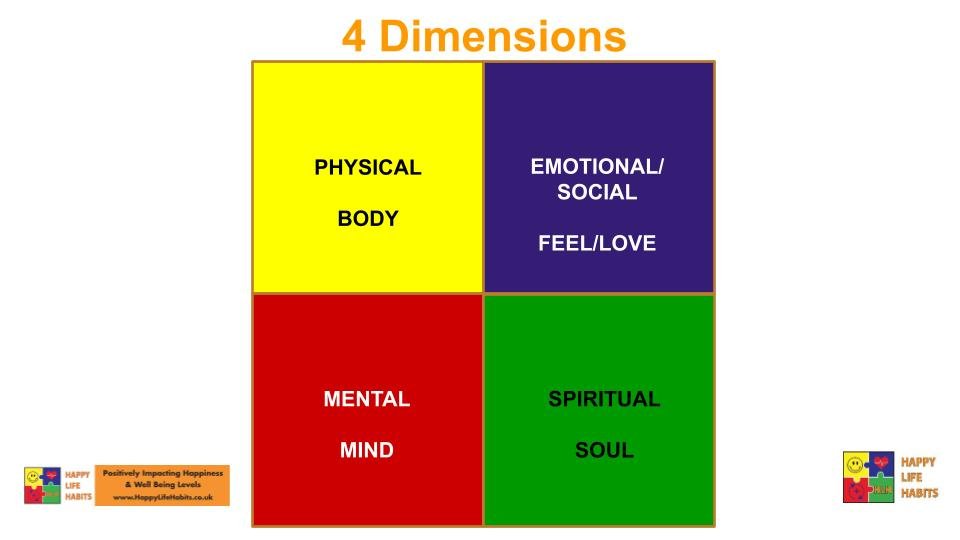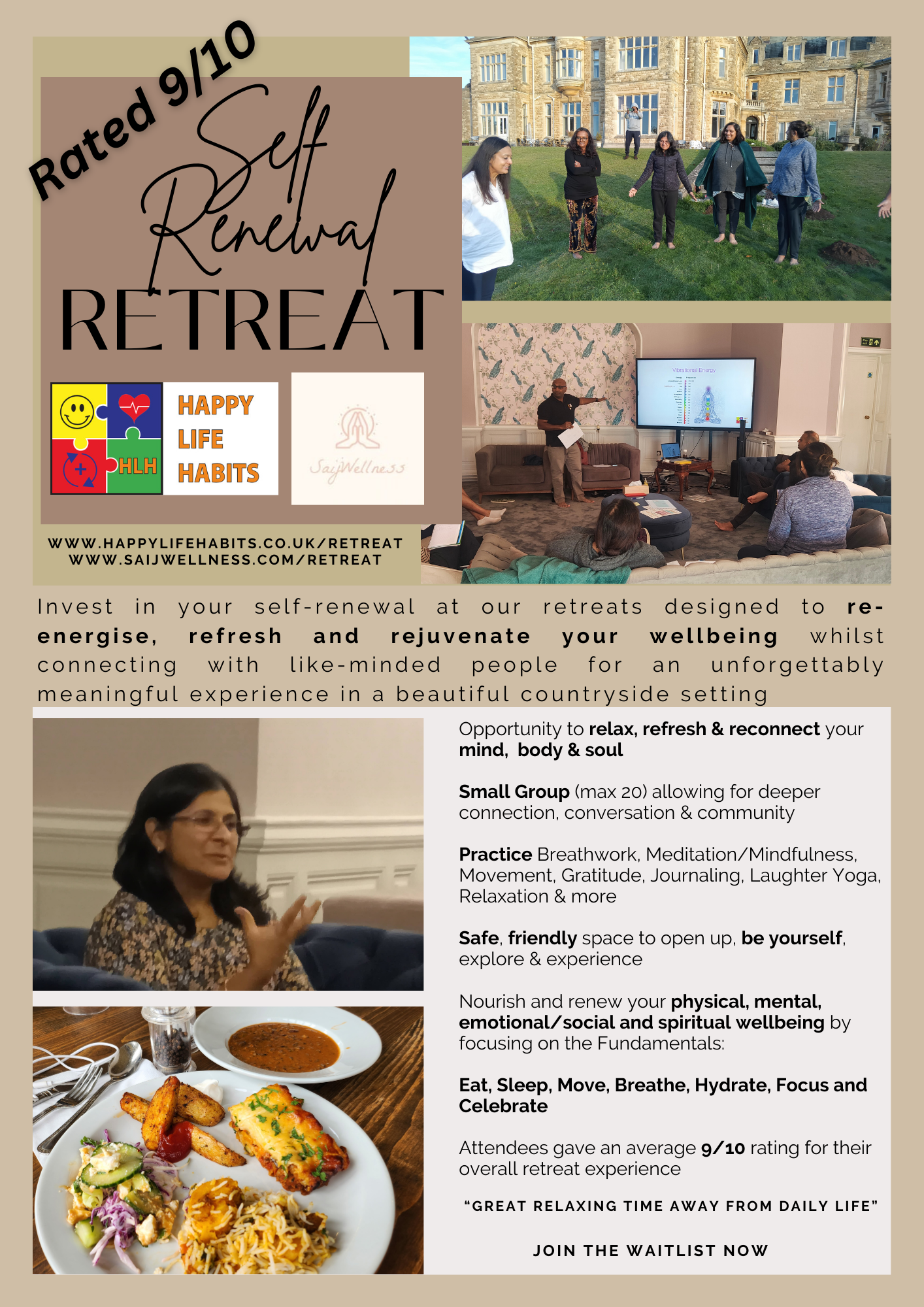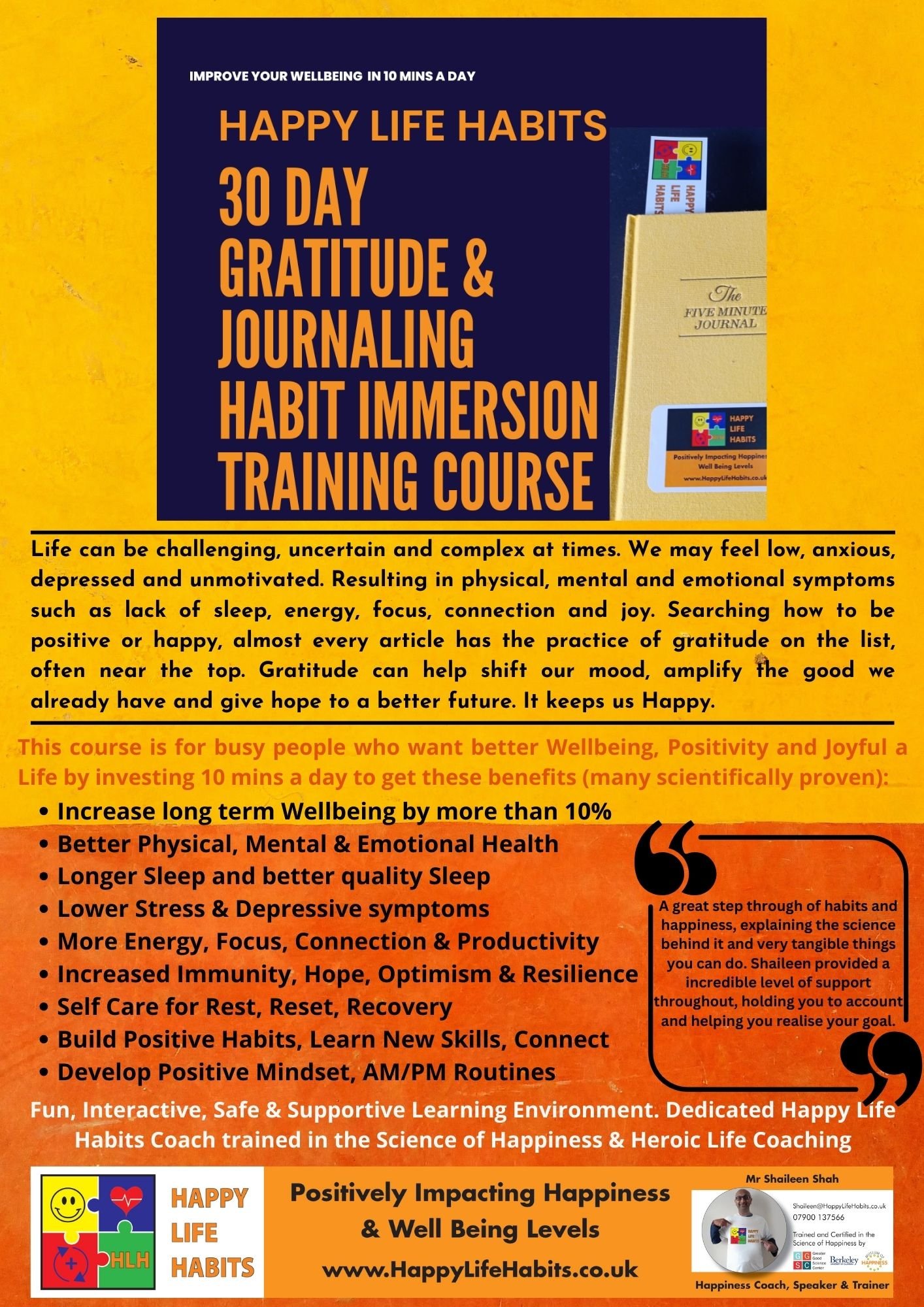A Christmas Care - Role (Carol) Who Cares? for the Carer? Dementia/Parkinson's/Old Age/Grief/Loneliness
In the story of Jesus’ birth there are three kings who come bearing gifts. In Charles Dickens’ The Christmas Carol there are 4 ghosts who visit Ebeneezer Scrooge. His business partner Jacob Marley and the ghosts of Christmas Past, Present and Future.
On 11th Dec 2020 our world changed when my father suddenly passed (https://www.happylifehabits.co.uk/news/2020/12/24/live-love-learn-amp-legacy) away within 36 hours. He was the primary carer for my mum. We had the gifts and ghosts of : Old age, Grief, Loneliness, Parkinson’s and Dementia. That was part of our inheritance.
Without those gifts and ghosts this article would not be written, published and shared.
As time goes by, the probability that someone close to you will be impacted by dementia is increasing.
“One of the hardest things in life is to know that you cannot stop the decline as you witness firsthand the diminishing cognitive capacity of a loved one due to progressive incurable neurological conditions such as Parkinson’s or Dementia.
To observe them becoming a shadow of themselves day by day; the impact on their physical, mental, emotional, social and spiritual wellbeing. Knowing there is nothing you can do to stop that decline. Experiencing the loss each day as anticipatory grief.”
This article is about my role as a carer for my mum who is elderly, grieving, lonely and suffering from the progressive and incurable neurological conditions of both Parkinson’s and Dementia. It shares the perspective of the carer, the challenges faced, how best to look after yourself as well as how to look after and interact with someone who has these conditions or someone you are caring for.
I salute all those who are carers of any type and ask you to support those who you know who are doing a caring role.
“Once, a student approached Rumi and asked, How should I deal with the pain and suffering in life?”
Rumi, in his wisdom, decided to share a story:
”There was a man who sought the wisdom of a great sage, hoping to find a way to escape his suffering. The sage looked at the man and said, ‘I will help you, but first, you must do something for me. Take this spoon, fill it with oil, and walk through the town without spilling a drop.’
”The man thought this task was simple enough and agreed. He took the spoon, filled it with oil, and began to walk through the town. As he carefully balanced the spoon, he couldn’t help but focus all his attention on not spilling any oil.
”When he returned to the sage, the sage asked, ‘Did you see the beautiful flowers in the town square? Did you notice the children playing and the laughter of families?’ The man realized he had been so fixated on the spoon that he hadn’t noticed anything else.
”The sage then said, ‘This is the key to dealing with pain. Just as you were so focused on the spoon that you missed the beauty around you, when you are consumed by your suffering, you miss the beauty of life. Pain is like the spoon, and life is like the town. Don’t let the pain consume your entire focus. Remember to look around and appreciate the beauty that still exists.’”
The student understood the sage’s message: while pain and suffering are part of life, it’s essential not to let them overshadow the beauty and joy that can be found in every moment. This story serves as a reminder that even in the face of pain, there is an opportunity to find meaning and beauty in life.
”
From Parkinson's UK (https://www.parkinsons.org.uk/information-and-support/what-parkinsons)
Parkinson's is a progressive neurological condition. This means that it causes problems in the brain and gets worse over time. People with Parkinson's don't have enough of the chemical dopamine in their brain because some of the nerve cells that make it have stopped working.
From Dementia UK (https://www.dementiauk.org/information-and-support/about-dementia/what-is-dementia/):
Dementia is an umbrella term for a range of progressive conditions that affect the brain.
Each type of dementia stops a person’s brain cells (neurones) working properly in specific areas, affecting their ability to remember, think and speak.
Doctors typically use the word ‘‘dementia’’ to describe common symptoms – such as memory loss, confusion, and problems with speech and understanding – that get worse over time.
Some films and books about Dementia:
Films:
You, Me Aur Hum - Bollywood movie with Kajol and Ajay Devgn. Powerful scenes including one where Kajol has gone shopping and forgets her way home.
Still Alice - Powerful story of a young professor diagnosed with Alzheimer’s soon after her 50th birthday.
The Father - very moving depiction with Anthony Hopkins
The NoteBook
Books
Mum, Me, White Lies and Tea: My journey into the heart of dementia - Ten lessons from accompanying my mum on her journey with dementia by my friend Nick Williams. (Get in touch if you want a signed copy)
Trials and Tribulations of a Carer for Parkinson’s and Dementia
A typical day (though there is no typical day) in my life as a carer for my mum who has progressive incurable neurological conditions Parkinson’s and Dementia. This means she sometimes does not know what to do, cannot follow a sequence of instructions, needs to be told repeatedly, is not independently mobile requiring a Zimmer frame to move about, can lose balance and have a fall, lives in a different reality and can get frustrated easily and have a change in mood. I share here some of the trials and tribulations to give an insight into some of the challenges a Carer has. Routine is important as is regularly giving the Parkinson’s medications at the correct time 5-6 times a day.
Robin Sharma shares the 5am club. Those who get up at 5am and use the hour to reflect, do journaling, learning and exercise. On some days I am part of the 2am, 3:30am, 4am, 4:30am club and everything in between too. (As I write this section mid morning we have been up from 2am -7am). This is when my mum has woken up during the early hours to go to the bathroom or just feeling unsettled. It can be no wakes up, 1 or 2 wakeups or multiple wakeups over a few hours. This broken sleep / sleep deprivation and intensity of interaction can lead to energy lows, heavy head, brain fog impacting plans for the day.
A trip to the bathroom is a 20 min round trip. On average 2 or 3 per night. Sometimes you have just taken, tucked into bed and within 5 minutes need to visit again.
Getting her ready to go to bed involves giving last meds, helping to get changed, settle into bed etc. This is a 30-40 min activity.
She asks for water just after you have got her tucked up into bed.
Due to the medications and changes in the brain she can experience hallucinations, different reality, emotional roller coaster and be illogical.
Both mum and I can share angry words or actions due to stress, lack of sleep, frustration, low energy.
Sometimes when I am on a zoom call I have to excuse myself or switch off video and audio in order to attend to mum’s needs.
When doing deep work or creative work the flow can be disrupted due to distractions and disturbances in looking after mum. This involves task switching which takes up energy.
Even though my father passed away about 3 years ago, mum asks “When will he come? Where is he?”. Having been brought up to tell the truth and not telling lies being a part of my faith I initially used to explain to her that he has passed away. From learning about dementia from literature and the Dementia Club UK Awareness Training we now have to tell a lie or half truths and say he is out but fine or not to worry and he will come later. We have to step into her reality and reassure her.
Each day can be like Groundhog Day, during the day having the same conversation or giving the same instructions again and again, as for them they have forgotten and it is for the first time in their reality.
No real concept of time.
Excellent video about Dementia, I really resonate with this : https://youtu.be/EuRHHmXbzYs
We are fortunate that we share caring responsibilities over the family members and get support from external carers. However if the carer does not come on a particular day it means we have to drop plans and shift focus and responsibilities.
Giving Care
This brilliant article I got from Dementia Club UK in their weekly email. These tips can apply to anyone with whatever they are dealing with. I get it wrong so often, this helps to remind and refocus.
https://www.agingcare.com/articles/caregiving-tips-teepa-snow-180395.htm
Dementia Caregiving Tips from Teepa Snow
My name is Teepa Snow, and I am a dementia care and education specialist. My personal mission is to better the lives of people with dementia—as well as the lives of their caregivers—by sharing what I have learned. An occupational therapist by training, I have been called “the horse whisperer of dementia.”
It can be difficult, frustrating and confusing to care for a person with dementia. In order to be successful in changing behavior when frustration mounts, it comes down to how we respond to what is happening and what we choose to do.
Five Tips to Help Dementia Caregivers Cope
1. Step Back
When an interaction is not going well, you have a choice: you can push your agenda and watch things get worse, or you can step back and think. What’s happening is often more complicated than it appears on the surface. In an effort to be helpful, you may have created a problem. The person who is challenging you is doing the very best they can with what cognitive abilities they have left. Stop judging them.
Learn to be a good detective. Your brain works better than theirs, so use it! Step back and assess their abilities. Know what you are working with. Try to figure out what might be driving the person. Analyze the situation. What are you seeing? What are you hearing? What might be their unmet emotional need? How about their unmet physical need? Why might they be doing what they are doing? What are they trying to communicate? You need to try to see things from their point of view.
2. Respond (Don’t React)
What you thought would happen didn’t happen. The person did not react the way you wanted (or expected) them to. You’re getting frustrated and you’re getting angry. What to do?
Stop reacting and stop your behavior of trying to correct them. Stop pointing out errors or mistakes. Stop trying to fix things. Stop raising your voice, and stop pushing your agenda. “Remember, I already told you that!” Do you find yourself repeating that sentence? It’s time to stop! Don’t argue with them.
What will be more helpful is to use the words they have given you. It’s called reflective narrative language and it will support their ability to make connections. Repeat back to them what they have said to you—acknowledge and validate what they are feeling. It is not helpful to focus on who is right or wrong, but it is often helpful to apologize (for whatever happened). Say something like, “I’m sorry this happened,” or, “I’m sorry I upset you, I was trying to help.”
3. Make Plans, but Expect Them to Change
Create a plan, think it through and get organized. Have a schedule. You know what you want to happen. However, when it doesn’t, you have to be flexible.
If your plan isn’t working, you can’t force it! It’s part of your care agenda. Adjust your plans as needed. It was just a plan! Figure out where to go or what to do instead. Having alternatives ready is necessary and helpful. Create Plan A, but always have a Plan B, Plan C or even Plan D at the ready.
4. Figure out What You Can (and Can’t) Control
Stop trying to control what you can’t control. This is so important to realize. You can’t control their dementia or their past (who they’ve been or their routines and preferences that may now be exaggerated or problematic). And, you can’t control/fix/change their behavior.
You do have some control, however, over their environment—their physical and sensory experiences. This includes where they are, the objects they use or have access to, and how you guide or help to direct their time. Consider how you can make a difference for both of you.
Pay attention to what helps them feel valued and important, as well as when they relax and regain their energy. Try to prioritize the most important things and what must get done. Know your agenda, but don’t show your agenda. Practice recognizing if/when something doesn’t go as you hoped and managing your response.
You can figure out how to get yourself under control, and you can build your skills and knowledge about how to better live with dementia. Change what you can change and then let go of the rest.
5. Take Care of Yourself
When it’s not working, when something you tried to do didn’t work, or when you’re getting frustrated or angry, you absolutely need to learn to take a time out. It’s critical to step away from the situation. Take at least three deep breaths—breathe in and out deeply!
When you are frustrated, angry or in despair, the person you are caring for picks up on and reacts to your stress level and intensity. They may not fully understand what you are feeling or why, but they will be impacted by your tone of voice, body language and emotional state. When you’re angry, you’re no good to them or to yourself.
Breathing deeply will help you get back to neutral, lower your stress level, and help you regain perspective about the situation you are trying to problem solve. Also, don’t hesitate to ask for help. Putting support systems in place for surprising times when living with dementia is critical. Dementia care is hard work!
About Teepa Snow
Teepa is an occupational therapist and dementia education specialist who works closely with dementia specialty service providers to develop and optimize programs and services to people living with dementia, their care partners and family members.
Communicating and Interacting
Here are some tips, rules and information that help with communication and interaction. Useful for general communication not just when with Parkinson’s Dementia patients.
If you interact with someone with Dementia, this is a really useful list of Golden Rules as is the Parkinson’s Dementia leaflet linked at the end
“16 Things I would Want if I Got Dementia”
by Rachael Wonderlin (rachaelwonderlin.com.)
(Copyright Registration No. TX0008332487)
If I get dementia, I’d like my family to hang this wish list up on the wall where I live. I want them to remember these things.
1. If I get dementia, I want my friends and family to embrace my reality.
2. If I think my spouse is still alive, or if I think we’re visiting my parents for dinner, let me believe those things. I’ll be much happier for it.
3. If I get dementia, don’t argue with me about what is true for me versus what is true for you.
4. If I get dementia, and I am not sure who you are, do not take it personally. My timeline is confusing to me.
5. If I get dementia, and can no longer use utensils, do not start feeding me. Instead, switch me to a finger-food diet, and see if I can still feed myself.
6. If I get dementia, and I am sad or anxious, hold my hand and listen. Do not tell me that my feelings are unfounded.
7. If I get dementia, I don’t want to be treated like a child. Talk to me like the adult that I am.
8. If I get dementia, I still want to enjoy the things that I’ve always enjoyed. Help me find a way to exercise, read, and visit with friends.
9. If I get dementia, ask me to tell you a story from my past.
10. If I get dementia, and I become agitated, take the time to figure out what is bothering me.
11. If I get dementia, treat me the way that you would want to be treated.
12. If I get dementia, make sure that there are plenty of snacks for me in the house. Even now if I don’t eat I get angry, and if I have dementia, I may have trouble explaining what I need.
13. If I get dementia, don’t talk about me as if I’m not in the room.
14. If I get dementia, don’t feel guilty if you cannot care for me 24 hours a day, 7 days a week. It’s not your fault, and you’ve done your best. Find someone who can help you, or choose a great new place for me to live.
15. If I get dementia, and I live in a dementia care community, please visit me often.
16. If I get dementia, don’t act frustrated if I mix up names, events, or places. Take a deep breath. It’s not my fault.
17. If I get dementia, make sure I always have my favourite music playing within earshot.
18. If I get dementia, and I like to pick up items and carry them around, help me return those items to their original place.
19. If I get dementia, don’t exclude me from parties and family gatherings.
20. If I get dementia, know that I still like receiving hugs or handshakes.
21. If I get dementia, remember that I am still the person you know and love.
Click here for the Parkinson’s Leaflet
Self Care
“I can’t afford to become ill. I have to stay in good health and energy in order to do my role as primary carer for my mum who has progressive incurable neurological conditions Parkinson’s and Dementia.”
Health, energy and Self Care are all priorities. I actively, daily and purposefully attend to these with routines and habits I choose. We can’t give from an empty cup.”
What are the 5 balls of life?
A speech about life being a game of ‘5 balls’ has been falsely attributed to Google CEO Sundar Pichai. It appears to come from a 1991 Georgia Tech commencement speech given by former Coca-Cola CEO Brian Dyson.
https://www.reuters.com/article/factcheck-quote-sundar-pichai-idUSL1N2SE1SE/
“Imagine life is a game of 5 balls that you manipulate in the air, trying not to fall these balls.
One of them is rubber and the rest is glass. The five balls are: work, family, health, friends, soul. It will not be long before you realize that (work) is a rubber ball.
Whenever you fall, you will jump again, while the other balls are made of glass.
If one of them falls, it will not return to its previous form. It will either be damaged, bruised, cracked, or even scattered.
You have to be aware of that and strive for it.
Manage your work efficiently during working hours, take the time to be assured of your sincerity, give the necessary time to your family and friends, take appropriate rest, and take care of your health. If you are gone, it isn’t easy to return as it was.”
My habits and routines for Health, Energy and Self Care, most done on a daily basis.
Drink a glass or small bottle of water (500ml or so) to rehydrate
Open the curtains to let natural light in
Using my Happiness journal to note
3 things that you are grateful for
3 intentions for the day, what would make the day great
3 positive affirmations
Review my personal mission statement, values, goals (morning and evening)
A few minutes of mindfulness / meditation with app or focus on breath etc
Choose and share daily positive quote on Happy Life Habits Daily Quote WhatsApp Group
Take time to Stretch / exercise by doing:
3 Sun salutations (surya namaskar from yoga)
3 pushups or situps or burpees
Recite prayers
Read a few pages of a book, watch or listen to something positive that I can learn from
Have a healthy, nutritious breakfast
Mid morning fruit break
Focused work
Planning
Regular breaks away from the desk computer
Go for a walk in morning or afternoon
Spend time with family/friends
Reduce mobile phone use during meals
Journaling
3 highlights or good things from the day
How could you have made the day better?
What did you learn during the day?
Go to bed around same time each day
Additionals that are not daily
Time for laughter – live comedy, shows, films, shared jokes
Live experiences: music, theatre, art, sport, travel
Sauna or massage
Time in nature, gardening
Volunteering, Service, Community, Faith
Reflecting on achievements/qualities – monthly, quarterly or every 6 months
These habits positively impact my health, energy and wellbeing and cover the scope of the 5 well being dimensions of Physical, Mental, Emotional, Social and Spiritual while at the same time releasing happy chemicals and flushing the stress ones away.
This is what I am learning
A friend said that they could not do the caring for a parent as it is a big commitment and sacrifice. For me it is not a sacrifice but a way of serving - though to be honest sometimes frustration and not having control on a lot of things makes it feel like a sacrifice. It’s a way of working through my karma.
This is what I am learning
Apply the tools, practices and routines, Develop Habits, Cultivate virtues. Reflect and Introspect. Accept reality.
Mindfulness, being present and in the moment
Slowing down
Centre and ground yourself
Understanding emotions better
Listening with full attention
Empathy, Compassion, Care
Connection is so important
Patience
Go with the flow
Proactive, Plan and focus on what’s important now and what need to be done soon
Focused moments of work
Self care, practices and routines
Sleep, rest and recovery
Keep being taught the lesson till we learn it
Resilience
Accepting the things I can not control
Responding rather than reacting
Not to take things personally
Fundamentals : Eat, Sleep, Move, Breathe, Focus
Very conscious of how I use my time, what I say yes to and what I commit to
People call less and visit less
“THE SPIRITUAL WARRIOR’S PRAYER
I pray not to be protected from life’s battles,
But to have the courage to conquer them fearlessly.
I pray not to escape from my struggles,
But to learn the lessons the universe is trying to teach me.
I pray not to work for fame and recognition,
But to make it my mission to love and serve others in all that I do.
I pray not to measure my wealth and success by what I own,
But by how grateful and abundant I feel in my heart.
And I pray not for my circumstances to change so that I feel happy,
But to be a beacon of light in the world wherever God places me.
”
For a better Future we have to be very Present when the Dementia patient is living in their Past.
Use it or lose it
As I have understood it, those who have Dementia have experienced a shrinkage in their brain. My theory based on what I have learnt and having no medical research is by keeping the brain active, learning new knowledge and skills, practising gratitude, journaling and mindfulness/meditation, exercising help to increase the neural connections, the grey matter and different parts of the brain thereby delaying or preventing the shrinkage. These practices also help our health, happiness and wellbeing.
The Heroic Coaching and App helps me with my Energy, Work and Love (Relationships/Connection).
Our 30 Day Gratitude and Journaling Habit Training Course I am immensely proud of as I feel it not only helps with happiness, mental and emotional well being, hope, optimism and resilience but also is releasing the happy chemicals washing out the stress ones. We know stress exacerbates inflammation and all underlying illness or disease we have.
People with Parkinson's don't have enough of the chemical dopamine in their brain because some of the nerve cells that make it have stopped working. Gratitude releases dopamine. What if the regular practice of gratitude releasing dopamines keeps those nerve cells active, healthy, working well and alive for longer?
The hardback, cloth bound Happiness Journal feels lovely in our hands, the act of thinking, reflecting and writing makes use of different parts of our brain at the same time (sight, touch, feelings, thoughts, memory, future thinking. motor skills etc) thus keeping them engaged and active. As shared in Gratitude is my Superpower - gratitude is a higher vibrational frequency energy.
We are going to run limited sessions of the 30 Day Gratitude and Journaling Habit Immersion Training course specifically for:
Carers
Coping with Grief
General Wellbeing
For Carers attendees will only be carers giving it a particular focus and support.
For Coping with Grief attendees will only be those who have experienced a loss and are working through the grief process giving it a particular focus and support.
The General Wellbeing session will be open to all.
If you are interested or know someone who may benefit from either 1, 2 or 3 please join the waiting list or message me.
If you are involved with a charity or organisation that supports Dementia, Parkinson’s, Grief or Carers (for any condition) I would love to explore the opportunity to make the 30 Day Gratitude and Journaling Habit Immersion Training Course available to support patients, staff, volunteers or carers with their mental and emotional wellbeing. Or to give a talk from a Carer’s perspective.
be part of the Happy Life Habits Community
Stay informed about Happy Life Habits activities plus add value information such as events, offers, articles, videos, quotes plus dedicated HLH groups.
Positively Impacting Happiness and Wellbeing Levels to go from theory to practice to mastery.
Average 2 messages a week
Join the WhatsApp Happy Life Habits Community at
https://chat.whatsapp.com/FJ4vetMGbEIEd2hH5BRfU2
and sign up for emails at the bottom of the page.
Resources
Some films and books about Dementia:
Films:
You, Me Aur Hum - Bollywood movie with Kajol and Ajay Devgn. Powerful scenes including one where Kajol has gone shopping and forgets her way home.
Still Alice - Powerful story of a young professor diagnosed with Alzheimer’s after her 50th birthday.
The Father - very moving depiction with Anthony Hopkins
The NoteBook
Books
Mum, Me, White Lies and Tea: My journey into the heart of dementia - Ten lessons from accompanying my mum on her journey with dementia by my friend Nick Williams. (Get in touch if you want a signed copy).
Organisations
Parkinsons UK https://www.parkinsons.org.uk/ - great resources including leaflets on specific aspects
Dementia Club UK https://dementiaclubuk.org.uk/ - resources / training and support sessions for carers and those with the condition
Alzheimer’s UK https://www.alzheimers.org.uk/ - wonderful Caring for a Person with Dementia book (free)
Barnet Carers https://barnetcarers.org/ - local borough carers support
How mindfulness can help cognition https://greatergood.berkeley.edu/article/item/five_ways_mindfulness_helps_you_age_better
This has relevant content in relation to exercise and brain cognition.
https://youtu.be/UyNotKnAFkM?si=FEUF0gAGzl3wiYLp
Another great video that links foods, diet and dementia.
https://youtu.be/98szU7WJySk?si=uKcmni03JpDTd1t6
Shaileen Shah - Happy Life Habits Coach, Speaker & Trainer
Happy Life Habits rewires hearts & minds for better productivity, happiness and wellbeing in 10 minutes a day. We help you move out of the comfort zone and into the learning/growth zones. Our products and services help develop habits and continuous personal development.
If you want to receive articles, information on events and support Happy Life Habits sign up to the join the email list and join the Happy Life Habits Community WhatsApp Group
Facebook Group, Instagram, LinkedIn, YouTube etc links can be found at https://linktr.ee/HappyLifeHabits
Shaileen Shah is a Happiness Coach, Speaker and Trainer. Previously having been in finance technology for the investment banking arm of RBS during the RBS takeover of Natwest, the RBS takeover of ABN Ambro and the financial crisis he has experienced the challenges brought by uncertainty, change and stress. He is certified in The Science of Happiness and shares through Happy Life Habits. Happy Life Habits Positively Impacts Happiness & Well Being Levels by creatively and uniquely combining Personal Development + The Science of Happiness + Spirituality. A business for Good. For more information see HappyLifeHabits.co.uk.
Happy Life Habits Positively Impacting Happiness & Wellbeing Levels











